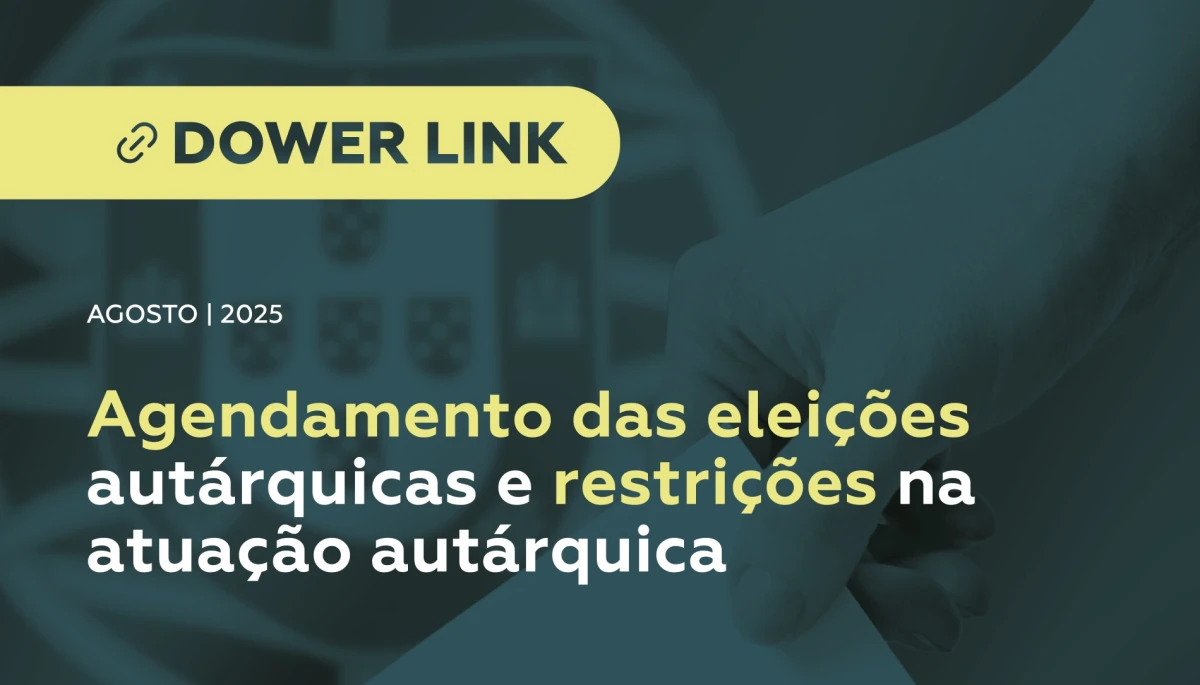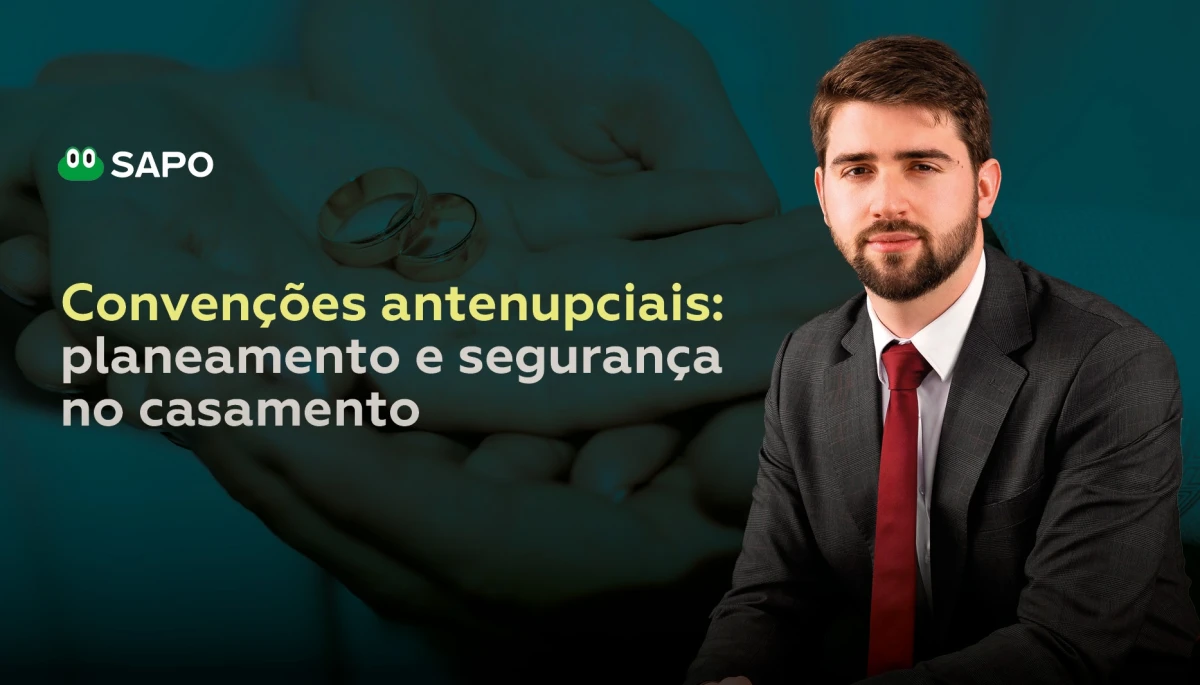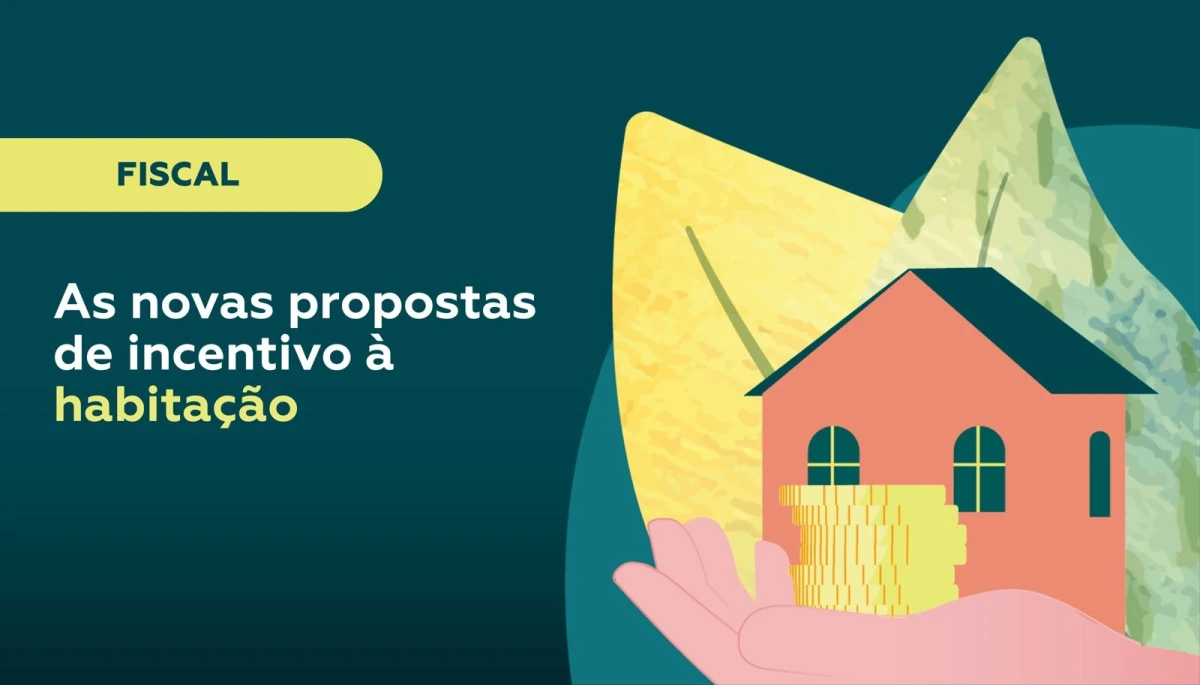
Scheduling of Local Elections and Restrictions on Municipal Action

Under legal terms, the publication of the decree setting the date of the elections marks the beginning of a period in which reinforced duties of neutrality and impartiality are imposed on public entities, which specifically implies the prohibition of disclosing acts, works, programs or services through institutional means (social networks, websites, invoices, billboards, among others).
It therefore means that institutional advertising is only allowed in cases of serious and urgent public necessity (e.g.: alerts, service interruptions, legal duties), as it is essential, during this period, to protect the integrity of the electoral process and ensure equal opportunities among candidacies.
Thus, the publication of Decree no. 8/2025, of July 14, which sets the date of the general elections for the bodies of local authorities for October 12, 2025, constitutes a legal milestone that triggers a set of relevant effects for local authorities, both from an administrative and from a communicational, institutional and political perspective. Although municipal bodies retain the full extent of their powers until the elections are held and the subsequent installation of the newly elected members, the setting of the polling date marks the beginning of a phase of greater demands regarding institutional neutrality, transparency and restraint in public action.
Exercise of competences of municipal bodies
First of all, it is important to stress that the mere setting of the election date does not, in itself, imply any suspension of competences or loss of powers of municipal bodies. Local authorities remain fully in office, being able to continue to deliberate, execute acts of ordinary and extraordinary management, approve regulations, enter into contracts, launch public tenders and exercise the other powers legally attributed to them.
However, as the election date approaches, and especially after the electoral act, the outgoing bodies are placed under caretaker management, pursuant to Article 9 of Law no. 169/99, of September 18 (in its current wording), which implies the limitation to acts strictly necessary for the proper administration and functioning of services, without compromising the margin of action of the new office holders to be elected.
Limitations on institutional advertising and public communication
The most immediate and sensitive implication arises, however, from the application of the legal framework on institutional advertising and public communication during the electoral period.
In the 60 days preceding the start of the electoral campaign – that is, from July 29, 2025, until the end of the electoral process – the following prohibition applies:
- Institutional advertising promoted by any bodies of local authorities, except in cases of urgent and unavoidable public need, duly justified;
- Dissemination of works, projects or actions that may be perceived as institutional or personal promotion of local office holders;
- Use of institutional means and channels (websites, social networks, newsletters, billboards, municipal magazines, local press with public funding, etc.) for purposes of political valorisation or indirect propaganda;
- Holding of commemorative, inaugurative or promotional events, if they are associated with public works or projects completed during this period.
These limitations aim to ensure, as already mentioned, the neutrality of public institutions and prevent any form of conditioning of the electorate or undue favouring of candidacies by public office holders.
The CNE – National Election Commission, in its various and successive Information Notes, has been clear and consistent in its stance on this point: the proximity of the electoral period requires increased restraint on the part of local authorities, recommending that any action be avoided which, although formally legal, may be interpreted as an attempt to politically capitalize on municipal action.
The prohibition of institutional advertising is enshrined in Article 10 of Law no. 72-A/2015, under the prohibition of political propaganda through commercial advertising means, considering as such any medium (internet, social networks, Facebook, municipal magazine, flyers, among others).
The National Election Commission (CNE) states:
“This prohibition, combined with the submission to special duties of neutrality and impartiality, aims to prevent public entities, through the means at their disposal, from using them in favour of a particular candidacy to the detriment of others, thereby creating a factor of imbalance between them, greatly affecting the principle – enshrined in all electoral laws – of equal opportunities for candidacies, set out in subparagraph b), of no. 3, of Article 113 of the Constitution of the Portuguese Republic.”
However, “the Commission understands that municipal publications (the official communication body of a municipality or parish) should be exempted, provided that they respect the regular cadence of their periodicity, have objective content, remain within the limits of impartial reporting of facts, and are absolutely forbidden from assuming a function of direct or indirect promotion of the activity of the body, as well as of a candidate or candidacy, whether through text or images used, namely through their systematic and repeated dissemination.”
As that Commission has conveyed, these rules imply, namely, the prohibition of using expressions such as “promise fulfilled”, “we do better” or any others that aim to praise the body, its holder or their activity, which may undermine equality and impartiality in the election for the respective local authority.
As the CNE has informed, following the express provisions of Article 41, no. 1 of LEOAL, “Since re-election for local authority bodies is possible, it is common for their holders to also be candidates, which obliges them to establish a strict separation between the exercise of office and their status as candidates and prohibits the use of offices to obtain illegitimate advantages.”
“In this sense, Ruling of the Constitutional Court no. 586/2017 is enlightening, by determining that these rules pursue the aim of guaranteeing equality among the various competitors subject to the electoral act. Such equality must also manifest itself in the clear separation between the assets of public entities and the resources used by election competitors. In other words, the guarantee of equality requires that public office holders, especially those seeking re-election, may not, through the exercise of these functions, direct the resources and structures of the institution towards the pursuit of interests of the ongoing campaign.”
Hence, the CNE teaches that, “In general, all communication acts aimed at directly or indirectly promoting, to a plurality of indeterminate recipients, initiatives, activities or the image of an entity, body or public service, which namely contain slogans, laudatory messages or praise of the issuer’s action, or which, even without such messages, are not of gravity or urgency, are prohibited.”
As it concludes, “In essence, the law aims to prevent, during the electoral period, the promotion by public entities of a ‘favourable dynamic attitude regarding the way in which they have pursued or pursue their competences and responsibilities’, from coexisting in the public and communication space with the propaganda messages of electoral candidacies, which may thereby, objectively, favour or prejudice them” (cf. Ruling of the Constitutional Court no. 545/2017). And the same decision continues: “Thus, the legislator understood that, for the functioning of the principle of equal opportunity and treatment of the various candidacies (Article 113, no. 3, subparagraph b), of the Constitution), the prerogatives of institutional dissemination by entities, bodies or public services should yield during the electoral period, except in cases of urgent public necessity.”
Some exceptions
But the law provides some exceptions, notably in the aforementioned Article 10 of Law no. 72-A/2015, which excludes from the prohibition of political propaganda through commercial advertising means, advertising announcements, so identified, in periodical publications provided that they are limited to using the name, symbol and acronym of the party, coalition or group of citizens and the information relating to the holding of a particular event, as well as advertising announcements on broadcasting stations and also on social networks and other means of expression through the internet.
In this sense, the CNE itself expressly states that “it is acceptable for public entities to convey certain types of communication to the general public, informing about goods or services they provide, when such communication is essential for their use by citizens or is essential to the fulfilment of their responsibilities”, as well as to maintain “publications of a continuous nature, such as websites, social network pages or institutional publications”.
Rules on the electoral campaign and the use of public resources
The official electoral campaign period will run from September 28 to October 10, 2025. During this period, only legally admitted candidacies (parties, coalitions and groups of citizen voters) may carry out political propaganda activities, with the means and forms permitted by law.
In this context, municipalities must ensure that:
- No public resource (human, financial, logistical or technical) is made available to any candidacy;
- Public spaces are made available in an equitable and transparent manner, in coordination with parish councils and the local electoral administration;
- Municipal services, including communication and image offices, suspend or adjust their activity to ensure institutional neutrality;
- Political office holders with executive functions avoid public or institutional interventions that coincide with campaign events, even if organized by third parties, under penalty of generating perceptions of instrumentalization of public means.
Responsibilities and risks
Failure to comply with these rules may lead to:
- Intervention by the National Election Commission, with possible issuance of binding opinions for the cessation of behaviours considered illegitimate;
- Imposition of very high fines (minimum of 15,000 euros and maximum of 75,000 euros) on political and technical officials who have authorized or carried out illegal acts;
- Invalidity of electoral acts, if it is proven that there was an imbalance in the treatment of candidacies;
- Reputational damage and loss of citizens’ trust in the impartiality of local institutions.
For this reason, all municipal services — with special focus on the offices of the presidency, communication, culture, public works, social action and events — are recommended to carry out a preventive review of the actions and plans foreseen for the months of August, September and October, assessing their legal framework and compatibility with the regime of institutional neutrality.




